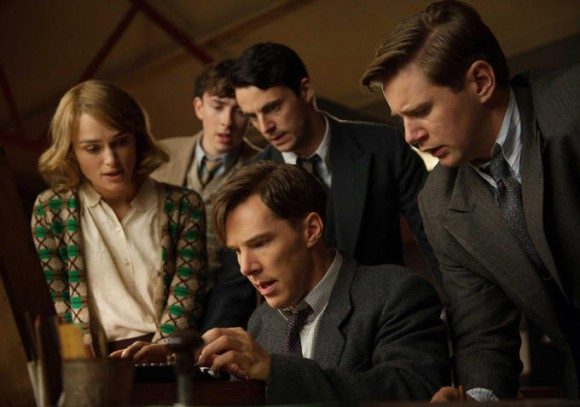While ranging from general acknowledgment to glowing praise, reactions to the first public showing of Alan Turing biopic The Imitation Game at the Telluride Film Festival were universally of the positive variety. Benedict Cumberbatch stars as the troubled genius, with distributor The Weinstein Company eyeing potential awards pop in a number of categories.
Those more critical of the film point chiefly to a number of familiar story elements – Turing fits very cleanly into the “Socially Awkward Genius” type seen in any number of films, and some would say there’s a bit of risk-averse approach that undercuts some of the film’s potential. Still, most of the film’s components, including particularly Cumberbatch’s Turing and Keira Knightly’s Joan Clarke (Turing’s colleague and eventual spouse), are drawing high praise, and the picture appears to be very well put together, if nothing else. Classically well made films have shown well in awards season in recent years, looking particularly at Best Picture winners Argo and The King’s Speech.
The story is framed by Turing’s 1951 arrest for homosexuality, which was illegal in Britain until the 1960s, but takes place primarily during World War II, when Turing was recruited to help crack the Nazi’s Enigma code. What audiences seem to be responding to most (in addition to the aforementioned performances) is the narrative complexity in evidence. By all reports thus far, the film successfully weaves together Turing’s brilliance, his social awkwardness, his relationship with Joan Clarke, his sexuality, and ethical questions pertaining to the WWII backdrop into a cohesive film, with much of the credit going to first time feature writer Graham Moore in addition to director Morten Tyldem.
The Imitation Game will also be playing at TIFF and the London Film Festival over the next month and a half before it hits U.S. theaters November 21st.


